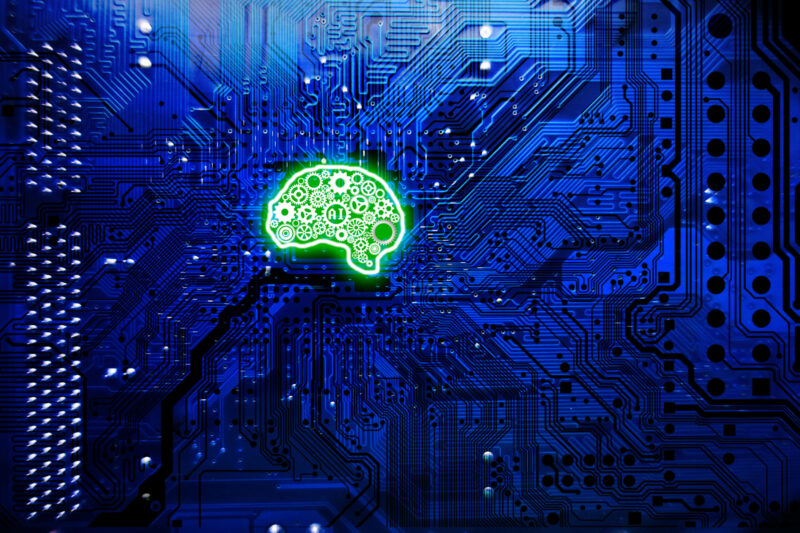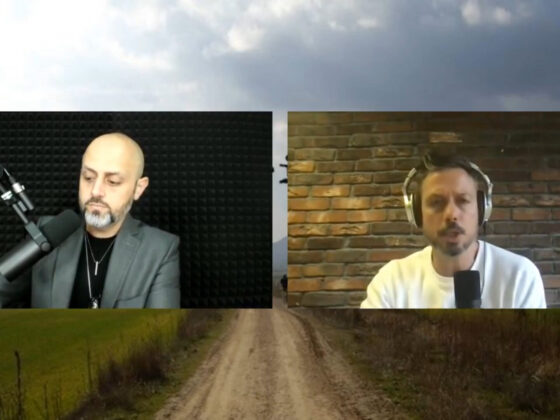DARPA’s STRENGTHEN program is looking to modulate and optimize brain circuits that are responsible for regulating emotions and cognitive flexibility.
“The STRENGTHEN program seeks to identify, modulate, and ultimately optimize brain circuits responsible for cognitive flexibility (CF) and emotional regulation (ER) to prevent impacts of traumatic stress while decreasing symptoms associated with mental illness and suicide” — DARPA STRENGTHEN Program, 2022
“The STRENGTHEN program seeks to identify, modulate, and ultimately optimize brain circuits responsible for cognitive flexibility (CF) and emotional regulation (ER) to prevent impacts of traumatic stress while decreasing symptoms associated with mental illness and suicide,” the program description reads.
“Current methods to prevent and treat these outcomes vary from talk therapy to electroconvulsive therapy, but they share a disease model and consequent goal of relieving symptoms rather than targeting the brain network causes.”
STRENGTHEN “seeks to prevent and heal brain changes caused by traumatic stress through advancing a neuro-mechanistic approach to assessing and optimizing cognitive flexibility and emotional regulation” — DARPA STRENGTHEN Program, 2022
In the end, STRENGTHEN “seeks to prevent and heal brain changes caused by traumatic stress through advancing a neuro-mechanistic approach to assessing and optimizing CF [cognitive flexibility] and ER [emotional regulation].”
The Pentagon’s research funding arm anticipates releasing a Broad Agency Announcement for the STRENGTHEN program sometime this month.
“NEAT is not focused on lie detection, truth detection, or assessing someone’s credibility but, rather, on aggregating preconscious brain signals to determine what someone believes to be true” — DARPA NEAT Program, 2022
“By bringing together recent advances in cognitive science, neuroscience, physiological sensors, data science and machine learning,” DARPA said that “the NEAT program will develop processes that can measure what a person believes to be true.”
While mental health among soldiers is a serious issue for the Department of Defense, applications coming out of the NEAT program have the very real potential to give governments and corporations the ability to hack human beings at the preconscious level.

“Just imagine North Korea in 20 years where everybody has to wear a biometric bracelet, which constantly monitors your blood pressure, your heart rate, your brain activity 24 hours a day” — Yuval Harari, WEF, 2020
“You listen to a speech on the radio by the ‘Great Leader,’ and they know what you actually feel — you can clap your hands and smile, but if you’re angry, they know you’ll be in the gulag tomorrow morning” — Yuval Harari, WEF, 2020
Speaking to the unelected globalists at the World Economic Forum (WEF) annual meeting in Davos in 2020, Harari warned that humans were no longer mysterious souls, but rather hackable animals that could be monitored and controlled by public and private entities in horrendous ways.
“You listen to a speech on the radio by the ‘Great Leader,’ and they know what you actually feel — you can clap your hands and smile, but if you’re angry, they know you’ll be in the gulag tomorrow morning.
“And if we allow the emergence of such total surveillance regimes, don’t think that the rich and powerful in places like Davos will be safe,” he added.
With the NEAT program, DARPA can back up what Harari said about the power to hack humans being used for good — like providing better (mental) healthcare — but it can also run the risk of creating a 21st Century Stalin.

“Focused Pharma seeks to revolutionize mental healthcare by developing completely new psychotherapeutic drugs to quickly remedy prevalent neuropsychiatric conditions such as post-traumatic stress, depression, anxiety, and substance abuse” — DARPA Focused Pharma program, 2019
Moving from technological to pharmacological solutions for mental health, the Pentagon’s research funding arm announced in 2019 that it sought “to revolutionize mental healthcare by developing completely new psychotherapeutic drugs to quickly remedy prevalent neuropsychiatric conditions such as post-traumatic stress, depression, anxiety, and substance abuse.”
DARPA acknowledged that it looked into Schedule I drugs in preparation of the Focused Pharma program, but concluded that soldiers having full-blown hallucinations would not be the desired outcome.
“Because such drugs act on many neurotransmitter receptors and receptor subtypes in the brain without specificity and indiscriminately activate numerous signaling pathways, they produce significant side effects, including hallucination.
“These effects, coupled with their unpredictable consequences, render the drugs unusable in a military healthcare setting.”
Focused Pharma would not include human clinical trials, but at the end of the scheduled four-year program researchers would be required to have an Investigational New Drug application ready for submission to the US Food and Drug Administration.
For years, DARPA has been addressing the issue of mental illness through various pharmacological and technological means.
“If you have enough data about me and enough computing power and biological knowledge, you can hack my body, my brain, my life” — Yuval Harari, WEF, 2020
While technological advances may prove invaluable in treating mental illnesses, they also have the potential to hack humanity in very nefarious ways.
As Harari said to the WEF, “To hack human beings you need a lot of biological knowledge, a lot of computing power, and especially a lot of data.
“If you have enough data about me and enough computing power and biological knowledge, you can hack my body, my brain, my life. You can reach a point where you know me better than I know myself.”
“Governments, corporations, and armies are likely to use technology to enhance human skills that they need like intelligence and discipline while neglecting other human skills like compassion, artistic sensitivity, and spirituality” — Yuval Harari, WEF, 2020
“After four billion years of organic life shaped by natural selection we are about to enter a new era of inorganic life shaped by intelligent design — our intelligent design is going to be the new driving force of the evolution of life,” Harari said.
“Governments, corporations, and armies are likely to use technology to enhance human skills that they need like intelligence and discipline while neglecting other human skills like compassion, artistic sensitivity, and spirituality.
“The result might be a race of humans who are very intelligent and very disciplined, but lack compassion, lack artistic sensitivity, and lack spiritual depth,” he added.
The Sociable editor Tim Hinchliffe covers tech and society, with perspectives on public and private policies proposed by governments, unelected globalists, think tanks, big tech companies, defense departments, and intelligence agencies. Previously, Tim was a reporter for the Ghanaian Chronicle in West Africa and an editor at Colombia Reports in South America. These days, he is only responsible for articles he writes and publishes in his own name. tim@sociable.co














